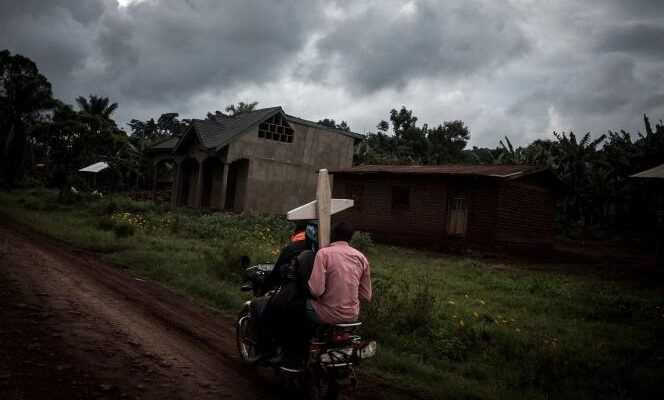A hospital in the Boga health zone, in the Congolese province of Ituri, was set on fire by an armed group on Monday (June 7th). Since then, thousands of people are now deprived of medical care. Frédérick Lai Manantsoa, Médecin Sans Frontières mission chief in Boga denounces the growing insecurity in this province which has been under siege for more than a month.
Under what circumstances was the attack on Boga hospital carried out?
In this area, two conflicts have overlapped for years: on the one hand, the ADF (the Allied Democratic Forces, an Islamist rebel group originally Ugandan) are leading brutal incursions. On the other hand, there are strong inter-community tensions. All this remains unclear. On June 7 at around 1 p.m., the hospital was looted and set on fire during a clash. We still do not know who committed it, but we know the toll: fifty civilians lost their lives. Hospital staff and patients managed to escape in time. Thousands of residents also took to the road.
What are the health consequences of such an attack?
We had finished building this hospital in September 2020, after three years of work. It had sixty beds and was the only operational structure in this health zone. We are very worried because the 80,000 people who depend on it are today deprived of care. We are also appalled by the failure to respect humanitarian and international law and by the violation of the neutrality of a health structure. We appeal to all parties to the conflict, including the Congolese government, to protect the inviolability of health facilities, their staff and ambulances.
The province of Ituri, like North Kivu, has been under siege for more than a month in order to put an end to atrocities committed against civilians by armed groups. How do you explain the persistence of the attacks despite the strengthening of the powers of the military?
For us, the solution to these conflicts cannot be solely military. As a humanitarian actor, we observe the deep social divides that divide communities. A fear has set in. Some people give up going to the hospital for treatment because they do not feel safe there. They stay at home or consult a traditional healer. The needs in the province of Ituri are today colossal. We humanitarians cannot respond to the frustrations arising from social problems and massive unemployment. It is a fundamental problem which calls for social and economic measures as well.
Congolese President Félix Tshisekedi has been on tour in the East for several days to assess the security situation. He arrived in Bunia, the capital of Ituri on Thursday, June 17. Faced with this outbreak of violence, what message are you sending him?
I’m glad he’s doing this tour, it’s a good sign. This will allow him to take stock of the gravity of the situation. There are currently 1.5 million displaced people in Ituri, 2.5 million people in need of humanitarian aid according to a report according to OCHA (Office for the Coordination of Humanitarian Affairs), or one third of the population. Today, the DRC is the second country after Syria in terms of internally displaced persons.
In addition, more and more women victims of sexual violence come to our structures. Despite funding from international donors, despite the efforts of humanitarian actors, the situation continues to deteriorate.
Ituri is today the first province in humanitarian emergency in the DRC. We ask the president to remind all parties to respect the inviolability of health facilities in this conflict zone.
